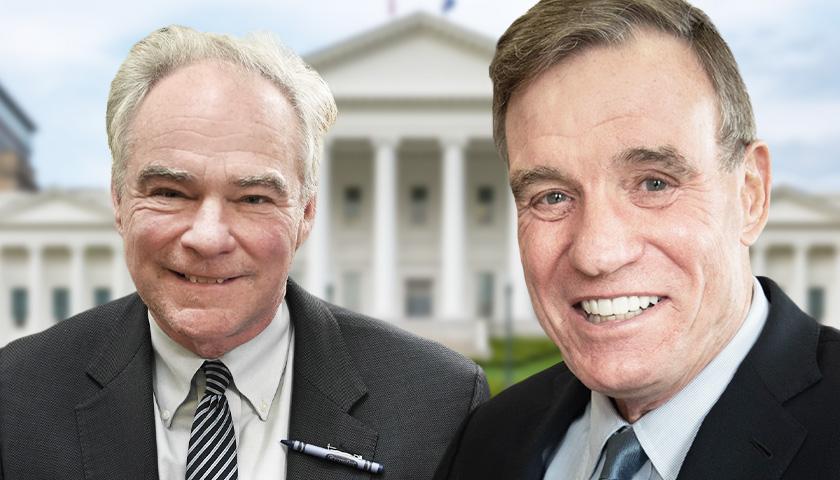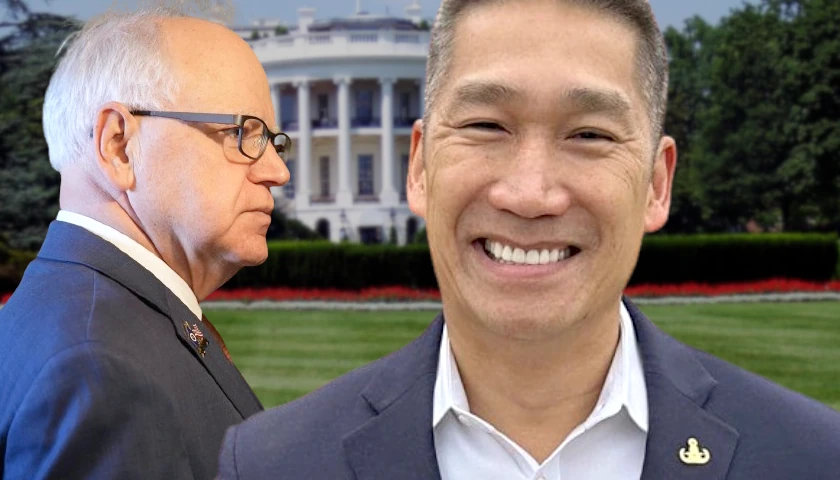by Morgan Sweeney
Virginia Sens. Tim Kaine (pictured above, left) and Mark Warner (pictured above, right) are cosponsoring bipartisan legislation to expand Medicare coverage of telehealth services and “make permanent telehealth flexibilities that were enacted during COVID.”
The federal government dictates how Medicare and self-insured plans cover telemedicine, whereas Medicaid and fully insured private plans fall within the purview of the states.
Expansion of Medicare coverage of telehealth services has always been the goal of the Creating Opportunities Now for Necessary and Effective Care Technologies for Health Act, which was first introduced in 2016 and has not yet been passed, though it has been reintroduced in each successive Congress and parts have been codified into law.
The government regulates Medicare telehealth coverage according to where the service is provided, how it is delivered, who delivers it, who receives it and how it is reimbursed.
Prior to the CONNECT Act, Medicare covered only certain telehealth services to patients in specific, defined rural areas, where it was more challenging to access a medical provider.
“Many Americans, particularly those living in rural communities, rely on telehealth to receive health care, and we should make it as easy as possible for them to do so. This bill is critical to doing just that, and I’m proud to be joining my colleagues in introducing this bipartisan legislation,” said Kaine.
Currently, Medicare covers some mental health, stroke care and home dialysis services via telehealth that it did not previously cover.
Many other restrictions were lifted temporarily due to the COVID crisis, but the CONNECT for Health Act of 2023 seeks to make telehealth more accessible to more Medicare patients permanently.
If passed, the bill Medicare patients could use telehealth from almost anywhere, not just in rural areas. The bill would also broadly open telehealth as a resource to the health care community – not just to certain facilities or providers. In-person visits would no longer be required for mental telehealth services, and telehealth restrictions could be waived in any future public health emergency.
“One of the lessons we learned from the COVID-19 pandemic is that our health care system is more adaptable than we thought. Over the last three years, patients have received quality care from the comfort of their own homes through the expansion of telehealth services. I’m proud to introduce legislation that will make permanent some of these services and ensure Virginians continue to have access to the affordable health care they need when they need it,” said Warner.
– – –
Morgan Sweeney is a staff writer covering Virginia and Maryland for The Center Square. Morgan was an active member of the journalism program as an undergraduate at Hillsdale College and previously freelanced for The Center Square.
Photo “Mark Warner” by Senator Mark Warner. Photo “Tim Kaine” by U.S. Senator Tim Kaine. Background Photo “Virginia State Capitol” by Martin Kraft. CC BY-SA 3.0.





